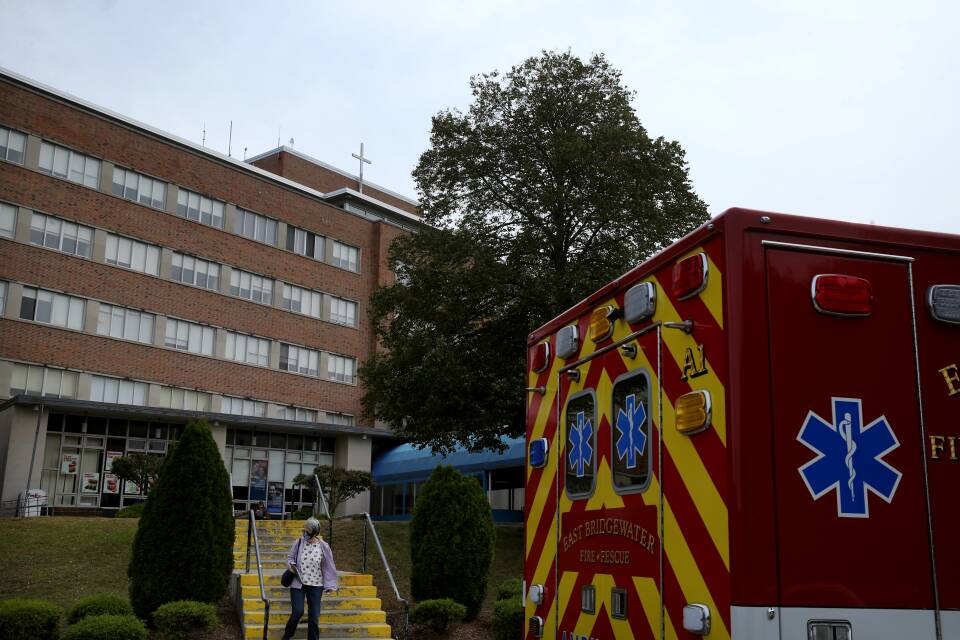Local health care experts and advocates have mixed reactions to news that financially struggling Steward Health Care has made a deal to sell its doctor network to OptumCare, a subsidiary of the for-profit health care giant UnitedHealth Group.
OptumCare, which is based in Minnesota, is the nation's largest network of physicians and employs almost 90,000 doctors in 2,000 locations nationwide.
Amy Rosenthal, executive director of the Massachusetts advocacy group Health Care for All, tells GBH News that she’s concerned and wants to see fewer local doctors in networks run by out-of-state owners.
“When you have a large national organization that does not have the same level of engagement with individuals in the neighborhoods in which they’re going to be providing care, you essentially lose something,” she said. “Does the doctor that they’re going to see speak the language that they speak? Are they going to be able to get to an appointment that's nearby their home? These are things that we need to be thinking of, not as an afterthought, but they need to be part of the solution from the start.”
Following the announcement, lawmakers at the state and federal levels immediately raised concerns, pointing to a reported ongoing federal antitrust investigation into UnitedHealth. The sale is under review by the state’s Health Policy Commission and, as Health Policy Director David Seltz emphasized, it cannot proceed until it has the commission’s stamp of approval.
House Speaker Ron Mariano urged the Health Policy Commission to “conduct a full review” of the potential sale’s impact and examine the ongoing antitrust investigation.
“The proposed sale of Steward’s physician group to Optum has the potential to significantly impact the competitiveness of the health care market in Massachusetts, and cause further disruption during a period of acute instability in the health care system,” Mariano wrote in a statement.
But MIT health economist Jonathan Gruber said there could be a potential “upside” to UnitedHealth increasing its presence in Massachusetts through Optum.
“United has not really gotten a foothold as an insurer in Massachusetts,” Gruber said. “[Steward's deal with Optum] could provide more competition in our insurance market. So that could be a good thing.”
On the other hand, Gruber added that the acquisition could limit patients’ choices of care providers.
“The downside is, does United make it harder for these doctors to then contract with other insurers? So I think the [Health Policy Commission] is going to have a challenge on their hands.”
Steward did not respond to a request for comment.
Optum spokesperson Aaron Albright told GBH News that the company expects the sale would improve the network’s ability to care for its patients.
“OptumCare does not anticipate that [the sale] will have an immediate impact on care referral patterns, access to needed services, quality of care, or reimbursement rates,” Albright wrote in an email.
David Seltz, the Health Policy Commission's director, said that remains to be seen.
“This is a significant proposed change involving two large medical providers, both in Massachusetts and nationally, with important implications for the delivery and cost of health care across Massachusetts,” Seltz said in a statement. “Details of the proposal will be reviewed by the HPC to examine potential impacts on health care costs, quality, access, and equity.”
Sen. Elizabeth Warren and Rep. Jake Auchincloss quickly issued statements slamming the proposed sale, with Auchincloss calling it “alarming.”
“UnitedHealth, a Fortune 5 leviathan already under federal antitrust investigation, has spent five decades corporatizing healthcare to the detriment of patients and physicians,” the Congressman said in a written statement. “My constituents in southeastern Massachusetts should not be next in line.”
Warren said the Steward executives have “no credibility,” and added that her top priority was “ensuring Steward’s Massachusetts hospitals remain open.”
“Optum, a UnitedHealth Group subsidiary, is already the largest employer of physicians in the country – controlling over ten percent of American doctors – which means this deal raises significant antitrust concerns in Massachusetts and nationally,” she wrote in a statement late Tuesday. “I’ll continue working in partnership with state officials and health care workers to support the communities Steward serves, protect jobs, ensure a competitive health care marketplace, and hold executives accountable for any wrongdoing.”
John McDonough, a professor at Havard’s T.H. Chan School of Public Health, said that even if the physicians network deal goes through, it would only be a “temporary fix” for Steward’s financial problems and would raise new questions about the hospitals it still operates.
“[It] leaves the hospitals themselves in a weaker position, without any direct connection to the physicians that are feeding them,” McDonough said. “Optum can direct those physicians wherever they choose and send them to non-Steward facilities. ... It’s all a money game. And so it leaves the health system and the state in a much weaker position.”








